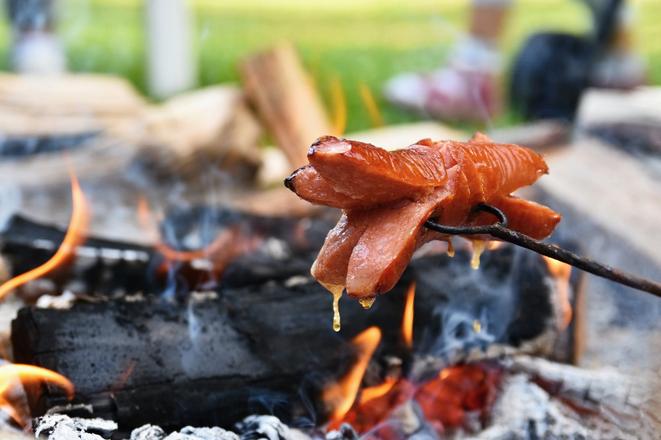It is summer, and the smell of smoke hangs in the air. As sure as you can catch the pungent whiff of burning leaves and waste from raked fields, so too might you taste the plumes of smoke rising from fires as families and friends opekajú.
Translated by my dictionary as to roast, brown, grill, broil, toast, frizzle, and bake, opekať, or the practice of cooking meat over an open fire, is as Slovak as barbequing is American. But the two have very different flavours, and the opekačka is a rustic affair. Though it can take place just behind your dom (house), or next to your chata (cottage), the roasting often takes place in a woodsy area somewhere, at least a 10-minute walk down a trail or up a hill.
For a little bite of Slovakia, the experience can be repeated anywhere. Here are the simple steps required to do so.

